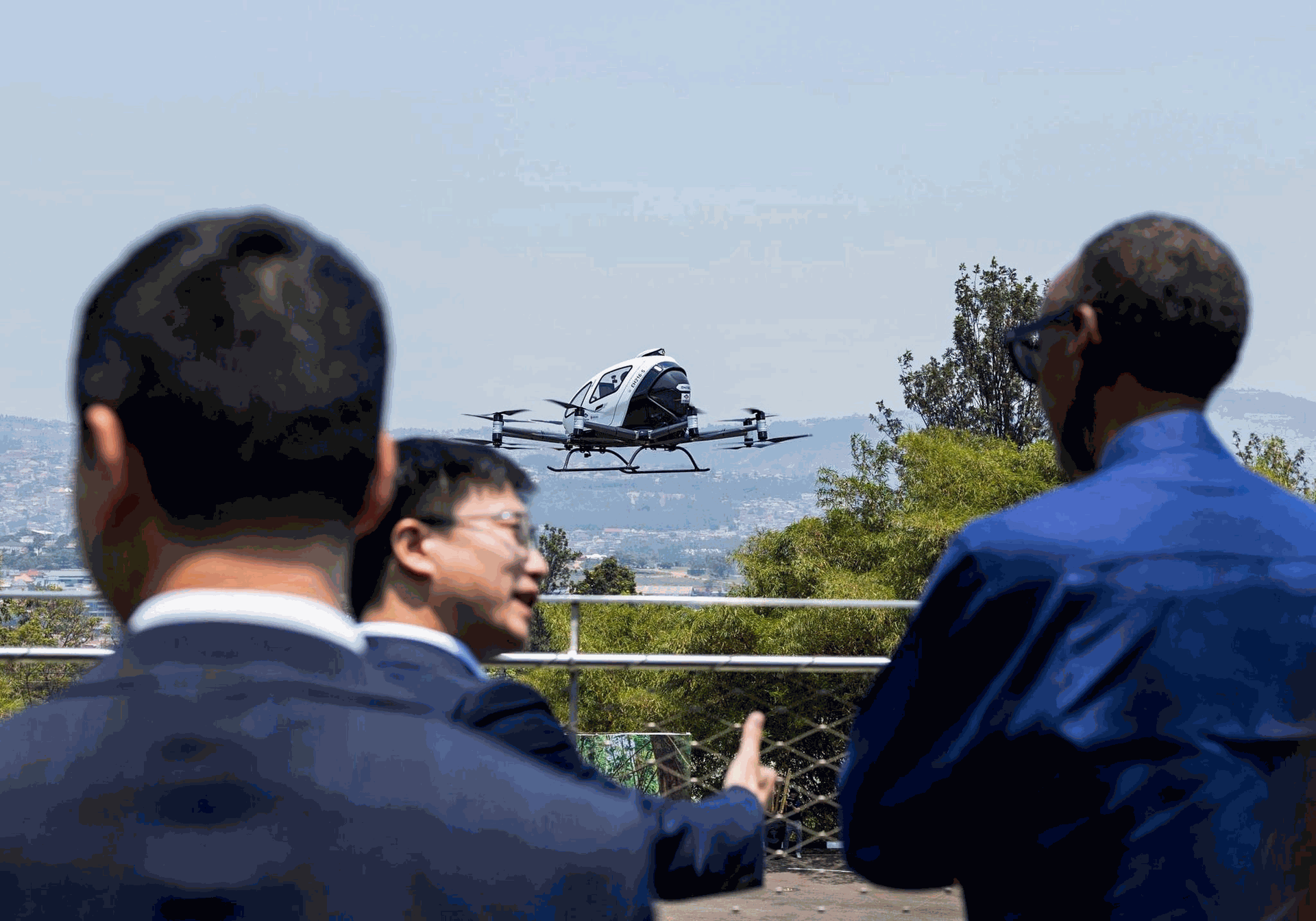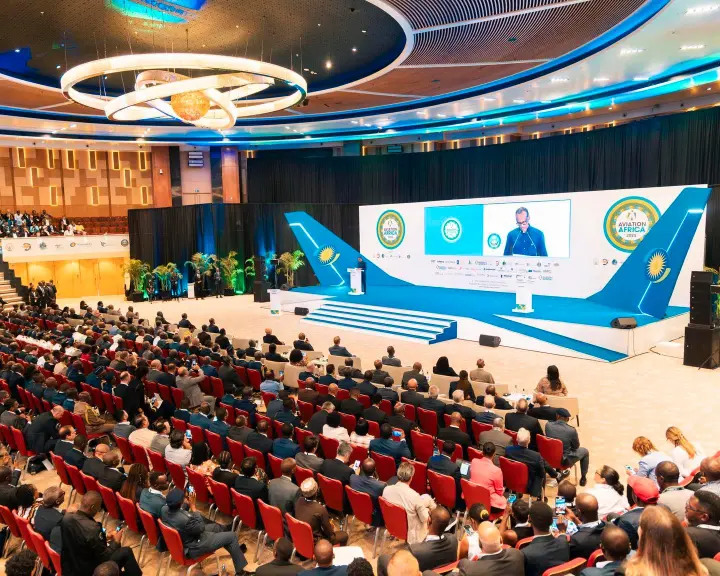Rwanda has become the first African country to launch a self-flying electric air taxi, the EH216-S, which can carry two passengers without a pilot. The debut happened at the Aviation Africa Summit 2025 in Kigali, marking a major step for the continent’s transport future.

This isn’t just about futuristic travel. It’s about how Africa moves people, goods, and services, a key pillar of the African Continental Free Trade Area (AfCFTA).
How It Works
- Like a flying taxi: book a ride, hop in, and fly above the traffic.
- Runs on electricity: eco-friendly, no fuel needed.
- Carries 2 passengers or light cargo.
- 20-minute flights, around 35 km range, at 100 km/h.

Technology Behind Rwanda’s Self-Flying Air Taxi
-
eVTOL Design (Electric Vertical Take-Off and Landing)
- The aircraft takes off and lands vertically, like a helicopter, so it doesn’t need long runways.
- Ideal for African cities or remote areas with limited infrastructure.
-
Electric Propulsion
- Runs entirely on electricity, powered by 16 motors.
- Reduces noise and zero emissions, making it environmentally friendly.
-
Autonomous Flight System
- Fully pilotless, using advanced software and sensors to navigate safely.
- Includes redundancy systems for safety, allowing it to adjust in case of obstacles or technical issues.
-
Lightweight and Efficient
- Can carry two passengers or 220 kg of cargo.
- Maximum range around 35 km at 100 km/h for short urban trips or transport along trade corridors.
-
Integration with Smart Infrastructure
- Can communicate with traffic management systems for safe urban integration.
- Requires minimal ground infrastructure, just vertical landing pads.
Potential Impact on Africa & AfCFTA
-
Faster Movement of People & Goods
- Could cut travel time across trade corridors and border towns.
- Helps traders, businesspeople, and service providers move quickly across the continent.
-
Boost to Services and Tourism
- Supports cross-border tourism packages, medical logistics, and business services.
- Opens new markets for service trade under AfCFTA.
-
Leapfrogging Infrastructure Challenges
- African cities often face congested roads and poor transport links.
- eVTOLs allow quick mobility without expensive road or rail construction.
-
Environmental Benefits
- Electric propulsion reduces carbon emissions, supporting Africa’s green development goals.
-
Stimulating Innovation & Investment
- Positions Rwanda and Africa as leaders in advanced mobility technology.
- Encourages tech partnerships, startups, and global investment in African aviation and logistics.
-
Enabling AfCFTA’s Vision
- Makes cross-border trade faster, cheaper, and more reliable.
- Complements other transport systems, helping integrate African markets.
What’s Next?
The first flight in Kigali is symbolic: Africa is preparing for a future where trade, people, and innovation move faster across borders. For AfCFTA to succeed, transport must be smarter, greener, and more connected, and Rwanda’s milestone is proof that Africa is ready to leap ahead.